Vocabulary expansion Normal Plants and Animals Worksheets for Ages 6-9
9 filtered results
-
From - To
Discover our engaging Vocabulary Expansion Worksheets focusing on normal plants and animals, designed specifically for children aged 6-9. These fun and educational resources help young learners enhance their language skills and understanding of nature. Featuring vibrant illustrations and relatable content, each worksheet encourages children to explore descriptive words, identify characteristics, and expand their vocabulary through captivating activities. Perfect for classroom use or home learning, our worksheets promote critical thinking and creativity while reinforcing essential knowledge about plants and animals. Boost your child's confidence and cultivate a lifelong love for learning with our interactive vocabulary exercises. Explore today for enriching educational experiences!
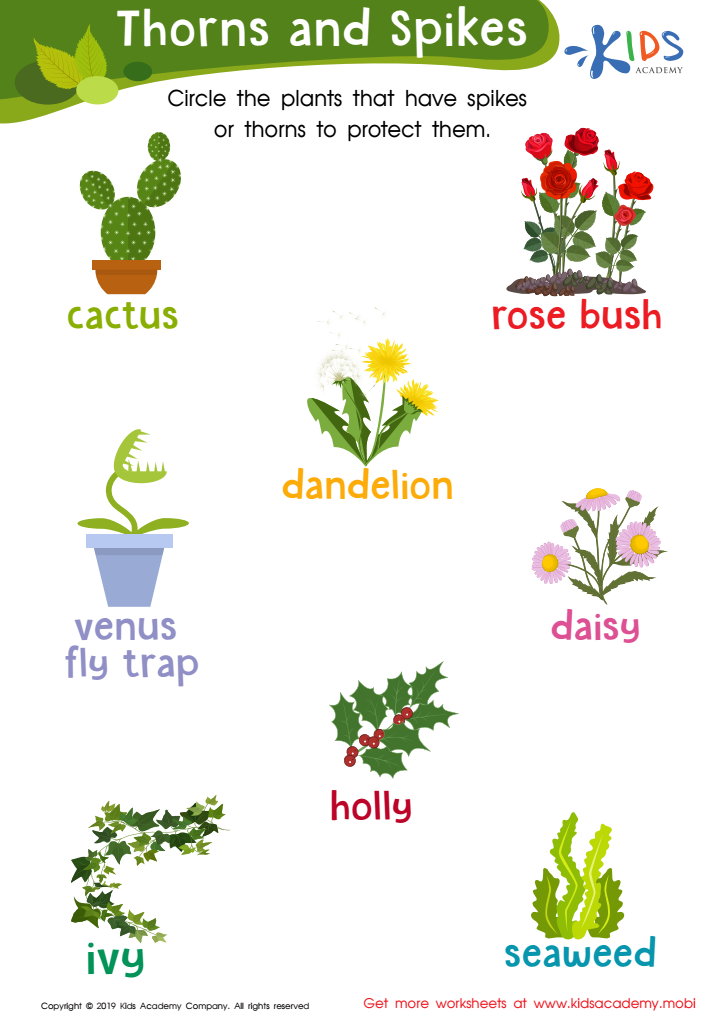

Thorns and Spikes Worksheet
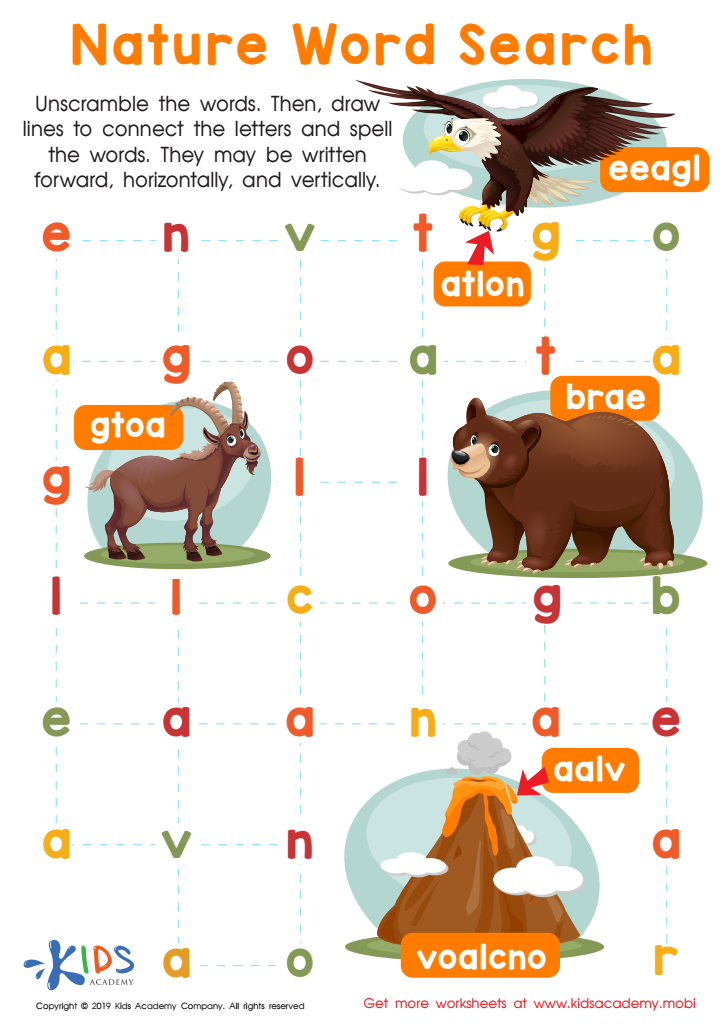

Nature Word Search Worksheet
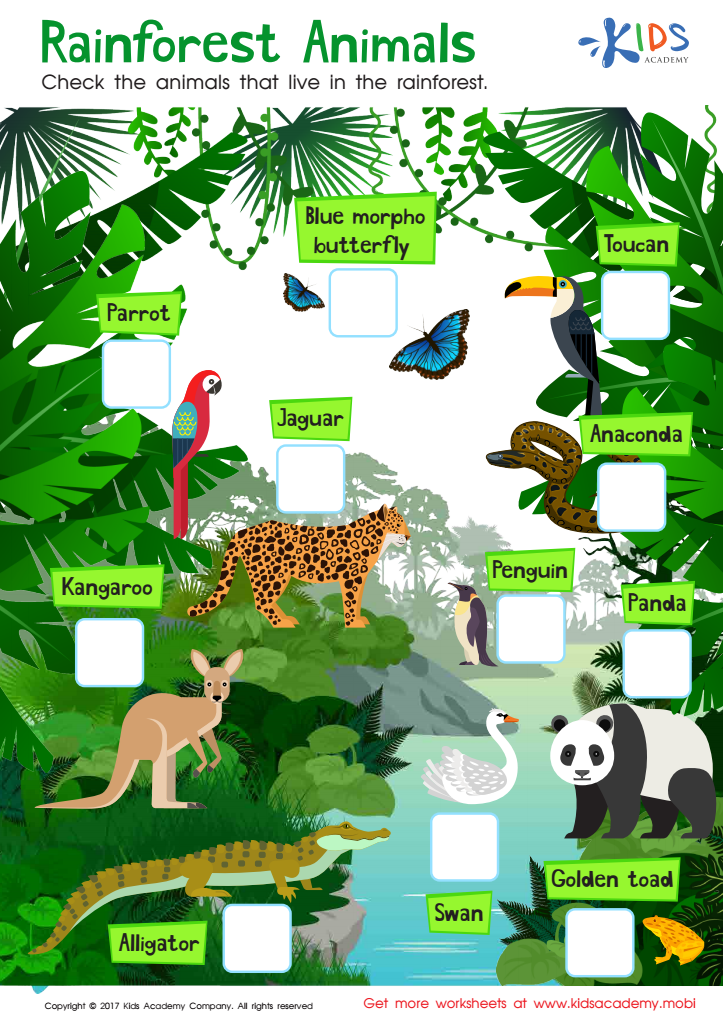

Rainforest Animals Worksheet
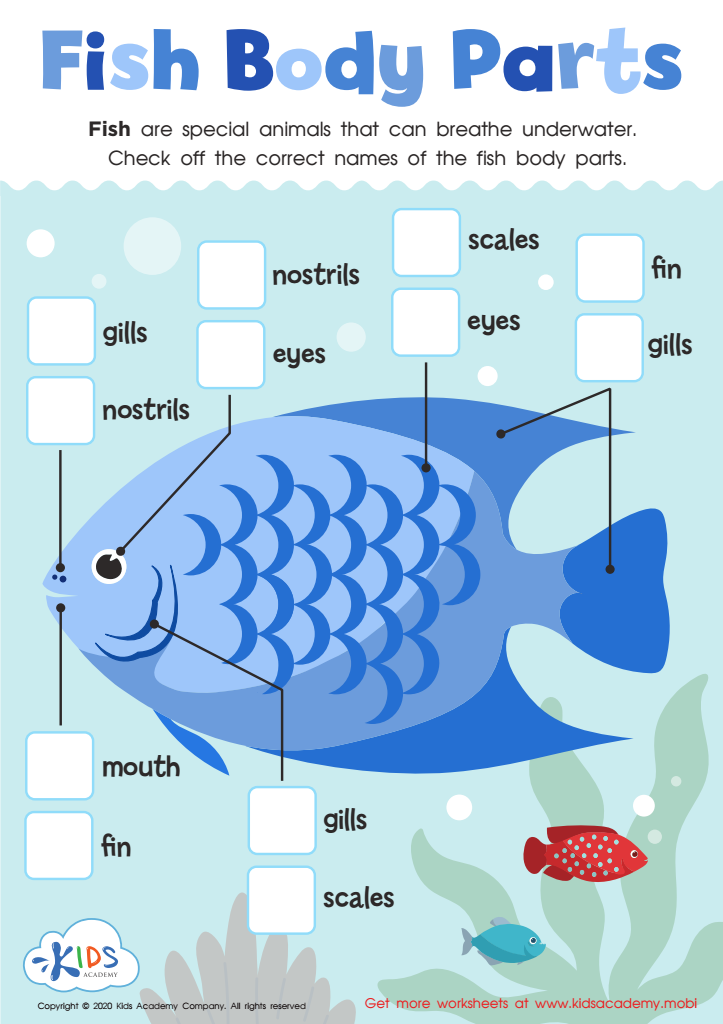

Fish Body Parts Worksheet
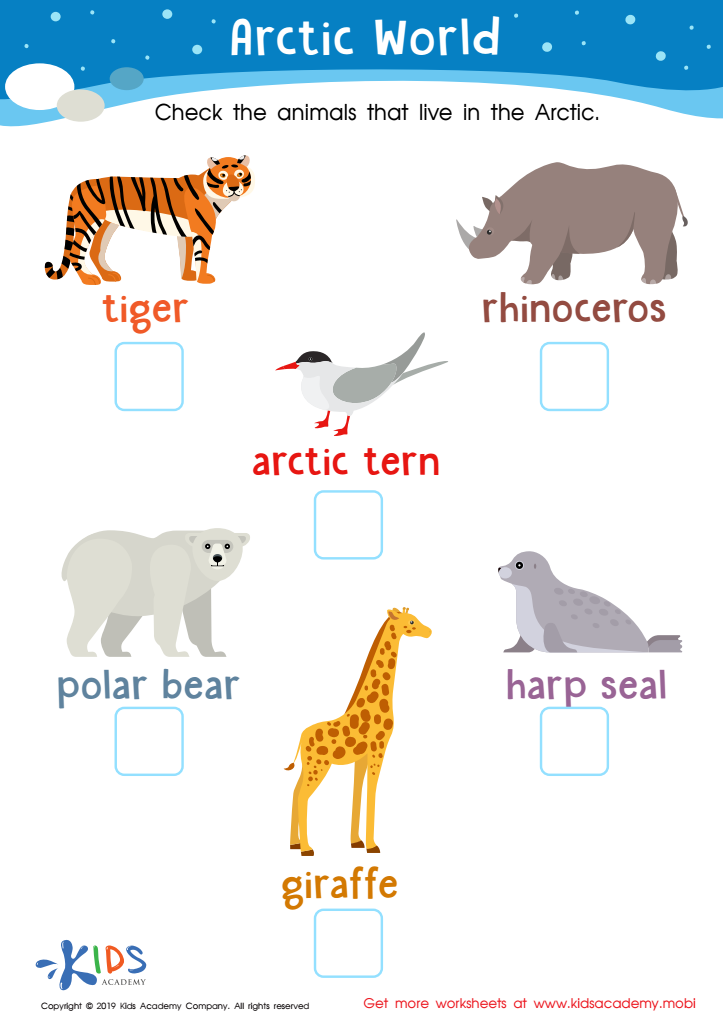

Arctic World Worksheet
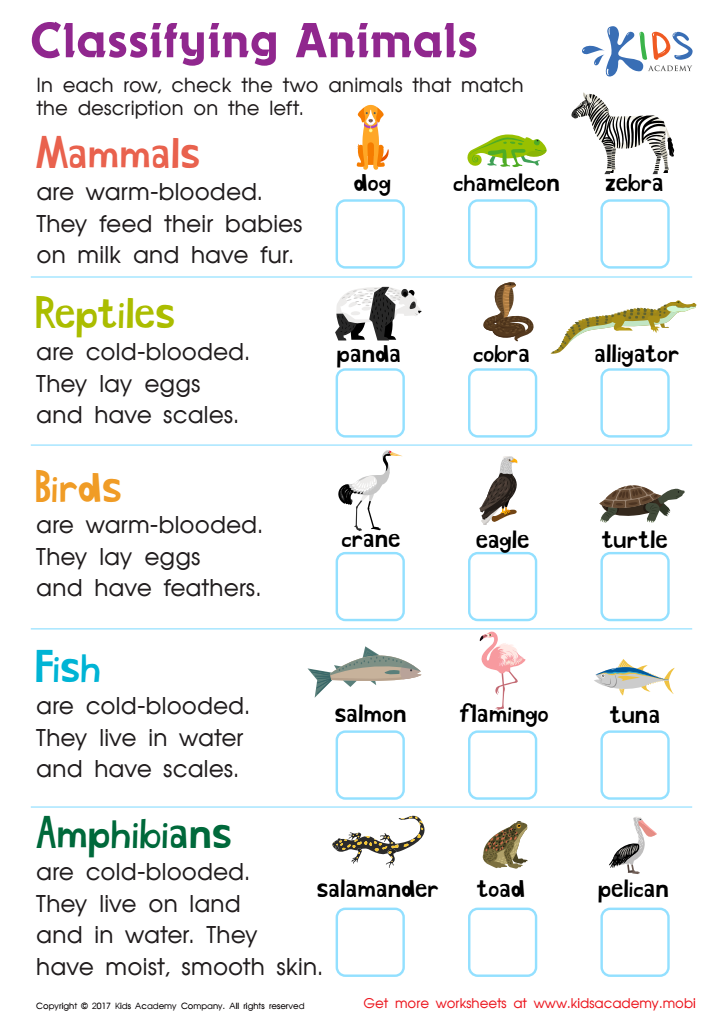

Classifying Animals Worksheet
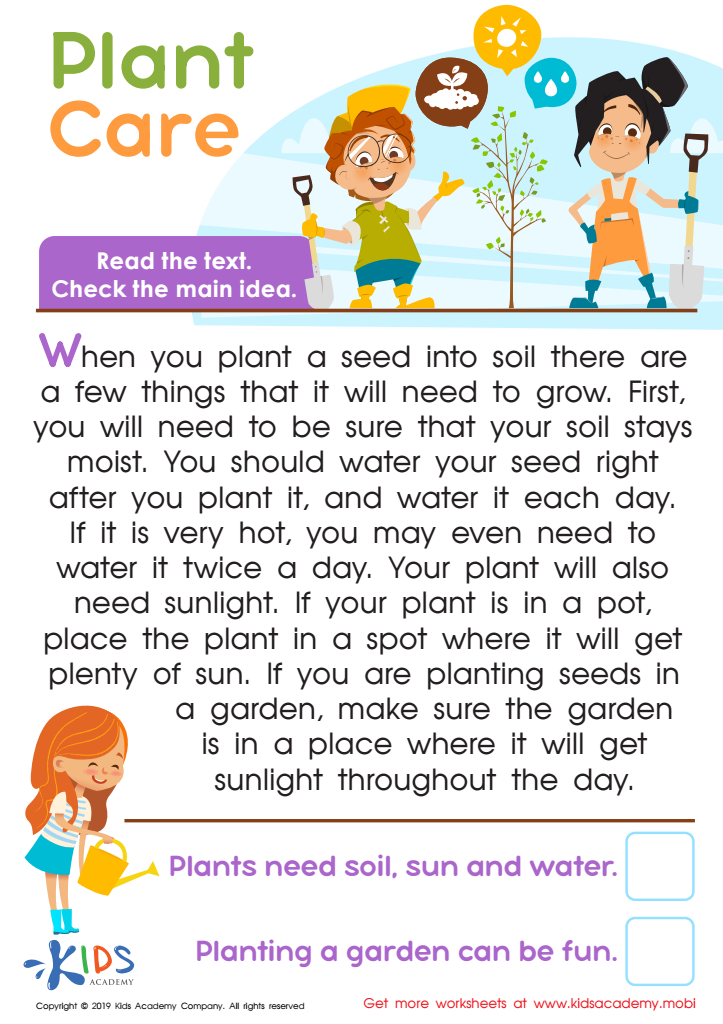

Plant Care Worksheet
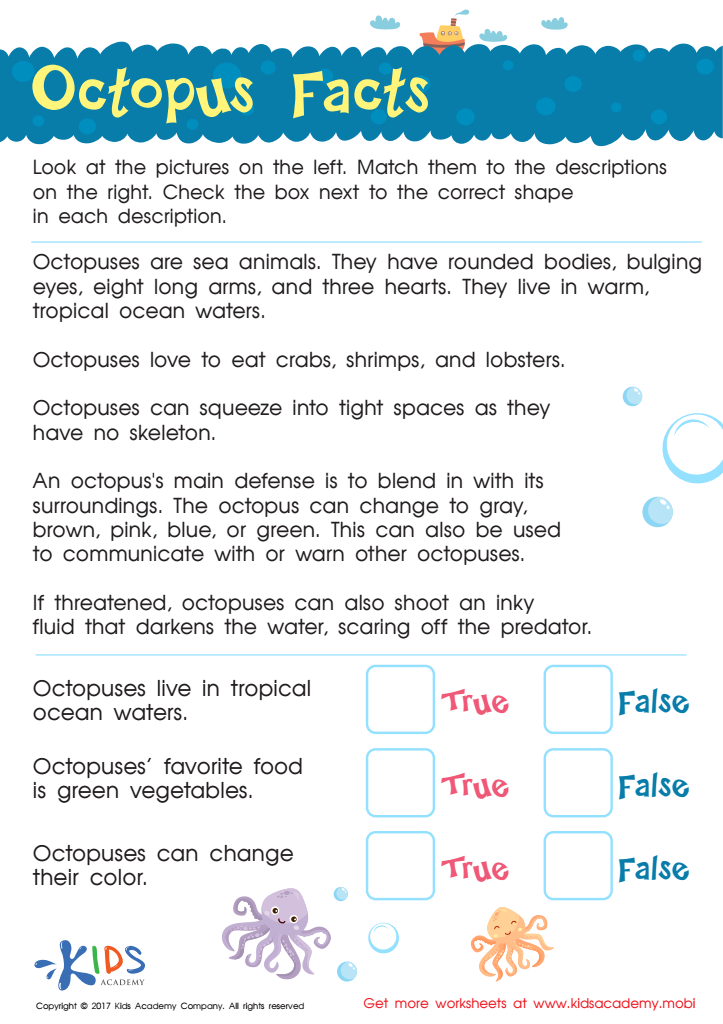

Octopus Facts Worksheet For Kids
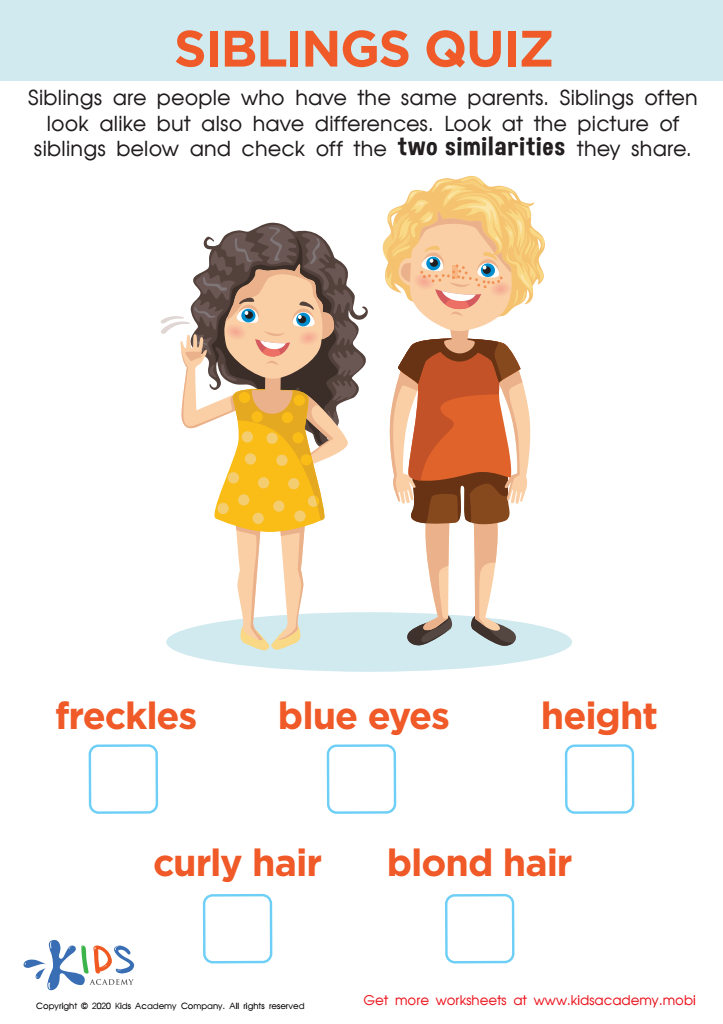

Siblings Quiz Worksheet
Vocabulary expansion is crucial for children's cognitive development and academic success, particularly in understanding concepts related to normal plants and animals. For children aged 6-9, a rich vocabulary enhances their ability to describe, categorize, and discuss the natural world, fostering a deeper appreciation for biodiversity.
When parents and teachers emphasize vocabulary growth in this area, they equip children with the language needed to articulate their thoughts, ask questions, and engage in meaningful conversations. This not only builds confidence but also supports critical thinking skills, as children learn to compare, contrast, and analyze different species and ecosystems.
Moreover, understanding plant and animal terminology lays the foundation for scientific literacy. As children encounter topics in biology, ecology, and environmental science in later grades, a solid vocabulary will make these concepts more accessible, encouraging ongoing curiosity and learning.
By nurturing vocabulary expansion now, parents and teachers kindle a lifelong interest in nature, critical to fostering responsible stewards of the environment. Activity-based learning, such as gardening or nature walks, accompanied by discussions about what they observe, can significantly enhance vocabulary retention, making these concepts more relatable and engaging for young learners.
 Assign to My Students
Assign to My Students
















